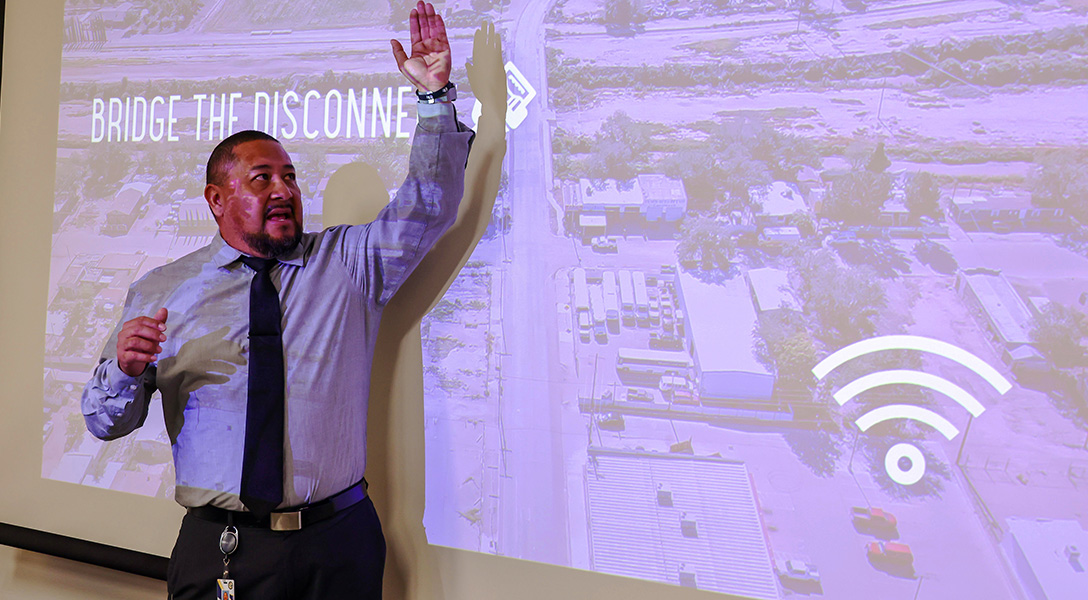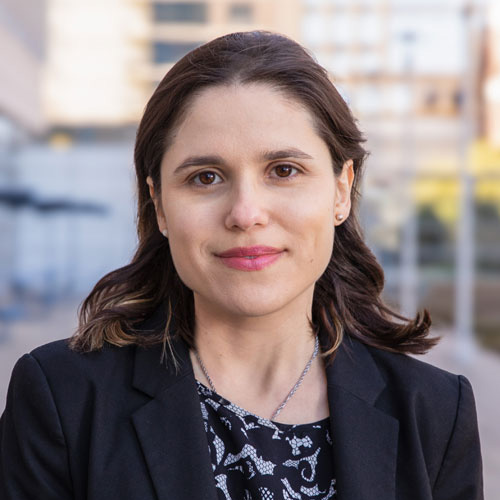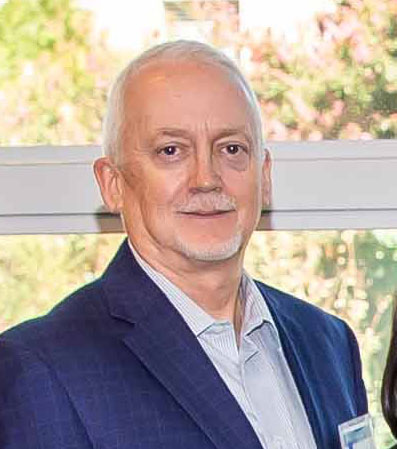
For collaborative leaders, keeping partners moving forward matters more than technical expertise
When community partners in El Paso and the surrounding Borderplex region came together in the wake of the COVID-19 pandemic to improve access to broadband, the individuals tasked with coordinating the effort initially worried that their lack of technical expertise would be an impediment.
Kassandra Huhn was vice president of workforce development at the Borderplex Alliance, an economic development organization serving the U.S.–Mexico border region that includes El Paso; Las Cruces, New Mexico; and Ciudad Juárez, Mexico. Huhn, now a community development advisor at the Federal Reserve Bank of Dallas, and Diana Bengson, an economic development grant and contract specialist for El Paso County, took on leadership responsibilities for Borderplex Connect, a collaborative initiative to address the lack of digital infrastructure in the region.
Neither had prior experience with broadband, but they didn’t let that limit their ability to move the effort from the idea stage toward implementation. Both credit facilitation skills they learned in the Advance Together Leadership Academy, hosted by the Dallas Fed, as instrumental.
“I thought I would need to be a broadband guru but was pleasantly surprised that I didn’t in order to help the people involved move forward together,” Huhn said.
Framework for accountability: ‘Who will do what by when’
Leadership academy participants work with local partnerships to address critical community priorities, such as workforce development, education attainment and digital inclusion. Some came to the job with decades of experience, but many had limited or no technical knowledge of the issues they’re targeting.
To lead collaborative efforts successfully, they needed to answer the question: “How do I exercise leadership when I lack experience in the field?”
During the academy, participants learned to be effective facilitators among coalition partners who had the necessary expertise. They gained skills and tools to lead meetings and develop clear agreements and action items that moved the work ahead.
Facilitation skills are important, Bengson said, because coordinating expansive efforts like regional broadband planning requires a multitude of meetings and it can be hard to maintain the discipline to make meetings productive. Learning how to go into each meeting with a clear agenda and message helped Bengson deliver on her responsibility: getting everyone to work together.
Bengson now organizes meetings around a framework of “who will do what by when.” This helps keep partners accountable, she said, and provides a timeline for the project.
Use of the framework enables Bengson to close each partnership meeting with a clear statement of the agreements made and the timeline ahead. “It’s the only way to show the executives at the table that we’re serious and they’re going to need to take this seriously too,” she said.
Meeting one-on-one to build trust
Collaboration skills like meeting facilitation might be more intangible than the technical skills of designing a broadband strategy, but they are essential to moving a diverse group of partners forward together.
Huhn said all the skills she developed through the academy—facilitation, evaluation, building trust, understanding context and inquiry—helped her exercise leadership among the Borderplex coalition partners.
Huhn and Bengson spent a lot of time meeting one-on-one with partners in the broadband effort to build trust. This helped engage parties who were initially skeptical—in part because past attempts to improve local broadband access had not succeeded in garnering the broad level of community support required to move from planning to implementation.
Building trust requires transparent, consistent communication. As Bengson and Huhn worked to identify and bring on new partners for Borderplex Connect, they spent hours together developing and delivering clear messages about the value of the broadband effort.
“We were well coordinated,” Huhn said.
Coordination skills lead to success
The success of their coordination role became evident when state officials visited El Paso in the spring of 2022 to learn more about the region’s broadband effort. In a show of unity for the Borderplex region, a variety of regional officials from the public and private sectors advocated for the emerging plan. This conveyed to the state that the region was ready to move forward with implementation.
Huhn and Bengson weren’t out front for those meetings. They didn’t need to be. The high-fives they gave each other in the parking lot afterward celebrated their ability to facilitate and unite a diverse group of leaders to move forward on a cause that they had grown to care about deeply.
“We don’t need the credit,” Bengson said. “We just want things to move in the right direction.”
About the Authors
The views expressed are those of the authors and should not be attributed to the Federal Reserve Bank of Dallas or the Federal Reserve System.

